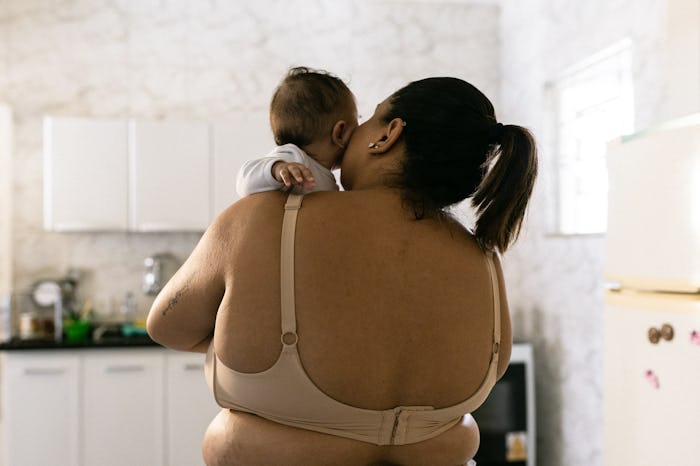Recovering

What All New Moms Need To Know About Lochia
It’s one of the most unglamorous parts of childbirth
Focusing your energies on the pending birth of you child is a normal part of the pregnancy process, but it's also smart to prepare for your postpartum recovery as well. Delivery is a strenuous event, after all, and your body will need a little extra care as you recover. As you look into the many aspects of postpartum recovery, you may have questions about postpartum bleeding, specifically lochia: What is lochia, and how can I best deal with this aspect of childbirth?
In general, lochia refers to the vaginal discharge made up of blood, tissue, and bacteria that occurs after giving birth. It's kind of like a period, but heavier than usual. Basically, you get to experience the most intense bleeding of your life right after delivering a baby.
With that said, postpartum bleeding does not last forever. Lochia generally only lasts around two to six weeks after delivery, and the amount of bloody discharge will gradually taper off. This is just an average, however, and if you have any concerns about your lochia, then don't hesitate to discuss it with your doctor.
What's more, dealing with lochia may provide its own set of challenges. The types of pads marketed as offering overnight protection, or even those meant for urinary incontinence, may be a good choice for postpartum pads. Really, this is not the time to take your chances with some tiny pantyliner. To take things to the next level, you may even want to make some DIY postpartum padsicles with aloe and witch hazel. Seriously: this is the best time ever to give your downstairs area a little TLC.
Although lochia is probably the last thing you want to deal with after giving birth, keep in mind that you're not alone. Most every woman who has given birth had to deal with the lovely aftereffects of so much discharge. Hopefully, though, you'll get through this aspect of the postpartum process without too much trouble.
This article was originally published on